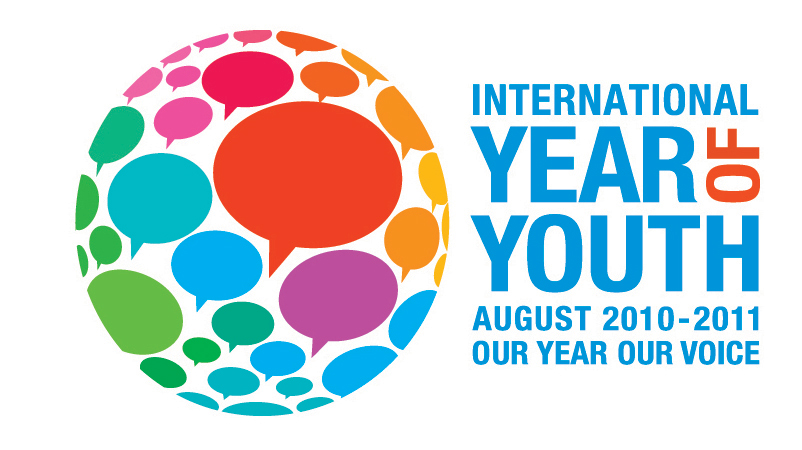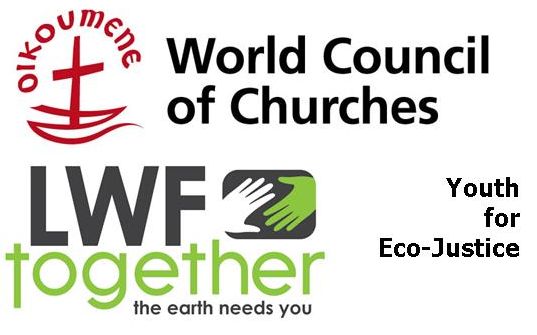1. Introduction
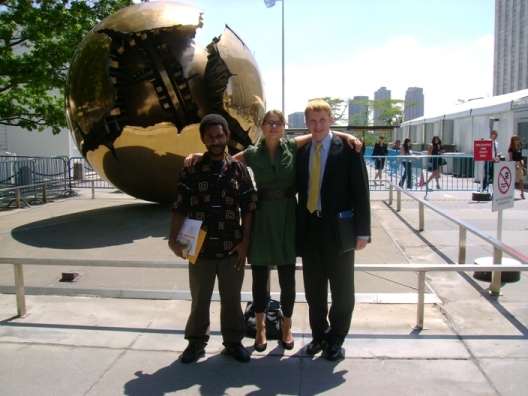
Among the 400 NGO’s who were registered to attend the UN High-Level Meeting on Youth from 25th – 26th July 2011, LWF registered three of us as its representatives to this event. Daan Leker from Netherlands, Matt Wertman from USA and I, Warime Guti from Papua New Guinea. Daan Leker and I represent two of the ten (10) LWF Council members under the age of 30 while Matt represent Evangelical Lutheran Church in America (ELCA) youths as the current president of the ELCA Youth.
2. Our participation at the meeting
When we were selected to attend the meeting, it was still unclear for us of what we will actually do. As we were getting into the meeting it all came clear that we were more of observers to this UN General Assembly meeting on youth.
There was a drafted “Outcome Document” from all our inputs. The inputs came from both civil societies and the governments. LWF Youths also submitted a statement that was registered and used as a source for the drafting of this outcome document. The theme of this draft outcome document is “Dialogue and Mutual understanding”.
3. The UN High-Level Meeting on youth
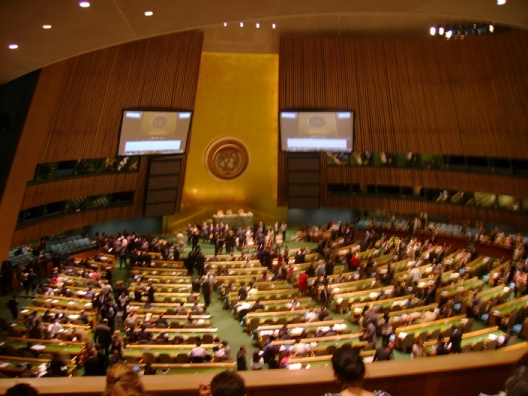 The two days meeting was all about this draft outcome document of the High-level Meeting of the General Assembly on Youth: Dialogue and Mutual Understanding.
The two days meeting was all about this draft outcome document of the High-level Meeting of the General Assembly on Youth: Dialogue and Mutual Understanding.
Day 1 (25th July 2011) was focus on the theme of the draft document “Dialogue and Mutual Understanding” while Day 2 (26th July 2011) was focus on the whole draft outcome document.
At such UN High-level meeting only the government delegates speak while all other delegates observe. We were more of being observers and advocators.
To be honest I am not sure what the UN will act next after this meeting. I know that the UN General Assembly adopted the draft outcome document but then what is the visible thing that we all can visualize as the outcome of this meeting. Maybe a UN Youth Agency will be set up or UN will push that each member state has to at least have one youth delegate at all its UN meetings. I am not sure, the meeting just ended when the last country gave his speech. The closing plenary wasn’t closed with a resolution moved by the government delegates or something so I am not sure. You can check it out on the UN webcast
5. Other world youth organisations
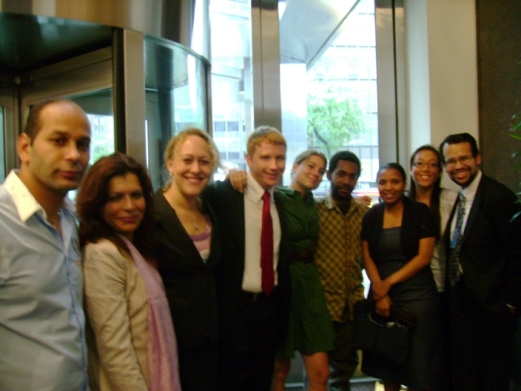 At this meeting we also have the opportunity to meet members of other world youth organisations. The outspoken world youth organisation is the International Coordination Meeting of Youth Organisation (ICMYO). It was the first time for the three of us to come across ICMYO.
At this meeting we also have the opportunity to meet members of other world youth organisations. The outspoken world youth organisation is the International Coordination Meeting of Youth Organisation (ICMYO). It was the first time for the three of us to come across ICMYO.
ICMYO gathers membership-based, democratic, representative, and accountable international youth NGOs and regional youth platforms. The main objectives of ICMYO are: 1) to strengthen cooperation among youth organisations at the regional and global levels and 2) the coordination of political inputs to global youth policy processes. You can learn more on ICMYO at www.icmyo.wordpress.com.
Some of the affiliated members of ICMYO include International Falcon Movement-Social Education International, World Alliance of YMCAs, World YWCA, Pax Romana, World Student Christian Federation, Youth Forum CPLP (Portuguese Speaking Countries Community, World Association of Girl Guides and Girl Scouts, European Youth Forum, World Organisation of the Scout Movement.
LWF Youth is not a member of the ICMYO.
On 26th July 2011, the ICMYO organized a press conference and invited all the NGO youth organisation to attend. It was quite interesting that many of the other non-members of ICMYO also did not know anything about ICMYO. It was the first time we were all exposed to ICMYO.
Instead of discussing the content of the press conference which the ICMYO presented many were eager to know about ICMYO. People were asking about its work/programs, also there was this discussion on youth’s age range and language barriers among multi-cultures.
6. While the world is talking about Youth Participation, LWF has already implemented it at the global Level
It was interesting to learn that; while the UN and other organisation were talking and striving to achieve youth participation; we (LWF) have already implemented it at the global level of LWF. That is; 20% of every decision making bodies of LWF is made up young people under the age of 30. And now, I believe, LWF’s focus will be to achieve youth participation to the regional and all the way to the local member churches.
Also just recently, at the LWF Council meeting in June 2011, we the young council members push and made youth participation a cross cutting priority in the LWF Strategic Plan 2012 – 2017. We (LWF) were a step ahead from what the others are striving to achieve, that’s what i think. It is my prayer that the new LWF Strategic plan 2012-2017 will capture a model for “youth participation” because “youth participation” is now considered a cross cutting priority; that other organisation can learn from.
LWF representation at this meeting was unique indeed; most of the other youths who attended were either a members of a youth organisation or representatives of their organisation or a member of a Youth Council of their country or they are experience advocators for youth participation in their organisation. However, we (Daan and I) were actually representing the 50 LWF Council members at this meeting to observe and witness the UN’s effort to work with the youths.
7. LWF’s effort to empower us young decision makers not to just be representatives but be good participants and advocators in the LWF Council.
When I was elected as a Council member of LWF, it was because of the fact that I am under the age of thirty (30), a layperson, a male and I am member of a LWF member Church. It was not because I am a social worker of any nature related to youth issues or other ecclesiastical matter.
My appointed to the council made me a representative of the region which I come from but leaves me with the question of my participation in the LWF Council. I am by LWF constitution, a legal decision maker of the LWF Council but then there is this gap of my experience and exposure to LWF and its mandate to serve the world. These include a good understanding into all the LWF vision, structure etc… and also knowledge of the external agencies that LWF works with and the issues LWF’s work centers around.
I am thankful to the effort the LWF youth desk has done so far in building our capacity as young LWF council members. During our fist council meeting in June 2011 in Geneva, Switzerland; there was a youth pre-council meeting organized where we (young council members) get to be oriented into many of the LWF structures and the process and systems of the LWF Council meeting. Through that pre-council meeting I get to have a good understanding of LWF and its meeting processes.
Now with my attendance to this UN meeting, I have gained some firsthand experience to UN systems and processes of meetings.
8. Conclude
To conclude, I would like to thank the Lutheran Office of World Community (LOoWC) at the UN Plaza, New York, especially to Dennis Frado and Christine Mangale for all their efforts in making this event possible for us. As our LWF agent working closely with UN matters, they have been so helpful with everything. I pray for God’s blessing upon their lives.
Also I would like to thank Roger Schmidt for all his work in preparing us young council members to be good participants and decision maker in the LWF Council meeting and not just being representatives of the youths in our regions.
Blessings!

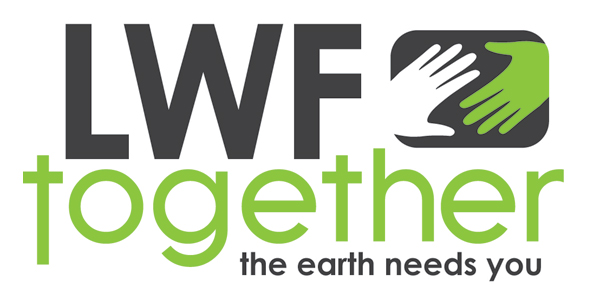
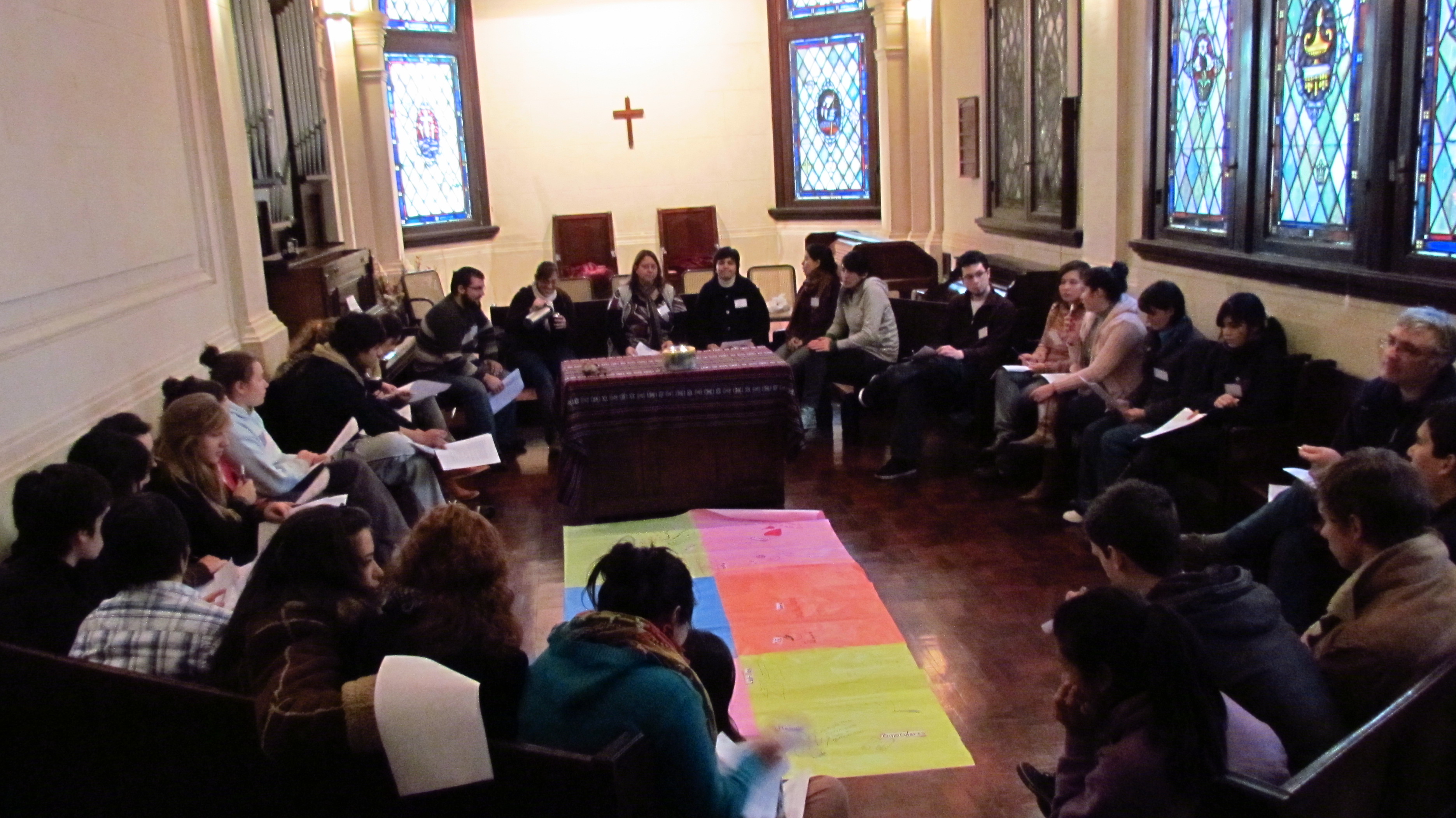

 The two days meeting was all about this draft outcome document of the High-level Meeting of the General Assembly on Youth: Dialogue and Mutual Understanding.
The two days meeting was all about this draft outcome document of the High-level Meeting of the General Assembly on Youth: Dialogue and Mutual Understanding. At this meeting we also have the opportunity to meet members of other world youth organisations. The outspoken world youth organisation is the International Coordination Meeting of Youth Organisation (ICMYO). It was the first time for the three of us to come across ICMYO.
At this meeting we also have the opportunity to meet members of other world youth organisations. The outspoken world youth organisation is the International Coordination Meeting of Youth Organisation (ICMYO). It was the first time for the three of us to come across ICMYO.